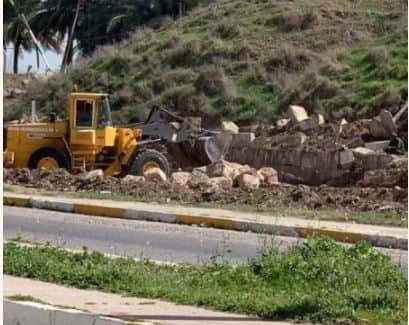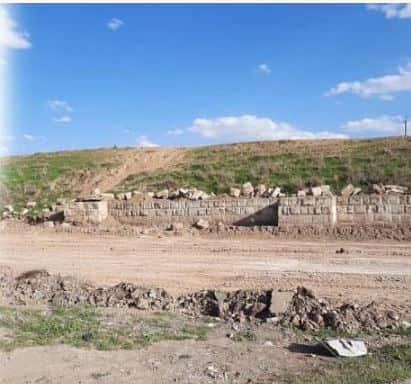While Assyrians around the world are currently preparing to celebrate their Assyrian ancestors’ tradition of Akitu or the Assyrian New Year, an ancient Assyrian heritage site is being bulldozed by heavy earth-moving machinery.

The wall of Nineveh, built during the reign of King Sennacherib (705-681 BCE) and which stretches 12km along the city of Nineveh (Mosul, Iraq), is being partially bulldozed by private contractors.
Activists and locals say they fear the remains will be used as building materials or sold as artefacts on the black market.
But the Antiquities Commission in the Nineveh province has denied the demolition falls within the Nineveh wall vicinity and it is 600 metres outside the protected Nineveh wall area.
SBS Assyrian correspondent, Naseem Sadiq, from Duhok, Iraq, told SBS that the wall was being knocked down to make way for road-building in the city.
The land surrounding that part of the site is claimed by an Iraqi family who states the previous government of Saddam Hussein confiscated it as part of government property.
Since the fall of Saddam and the old regime, the family has been fighting in courts to get the property back. Recently, the family won their appeal and the land was returned to them, however none of these procedures were discussed publicly.

Mr Sadiq also spoke to Dr Audisho Malko, an Assyrian historian and President of the Assyrian Writers' Association, who said he was devastated by this act.
In many countries, when a small piece of rock or even a tiny piece of land that has historical value is discovered or excavated, we immediately see Government authorities, media and academic researchers rush to secure the discovery and treat it as a national treasure.
Dr Malko explains that the partial destruction of a 3000-year-old structure built during the Assyrian Empire is not only a loss to the Assyrians, but for the Iraqi people, Iraq’s history and the international community. The wall was initially built to protect the city of Nineveh from intruders and invaders.

The issue of this destruction is not over yet. Our correspondent is following the developments and will be reporting soon on responses from Assyrian activists and politicians, Iraqi academics and intellectuals.
So far, a number of letters objecting to the destruction have been sent to Iraqi ministries and to the Prime Minister of Iraq, Mustafa Al-Khadhimi.





